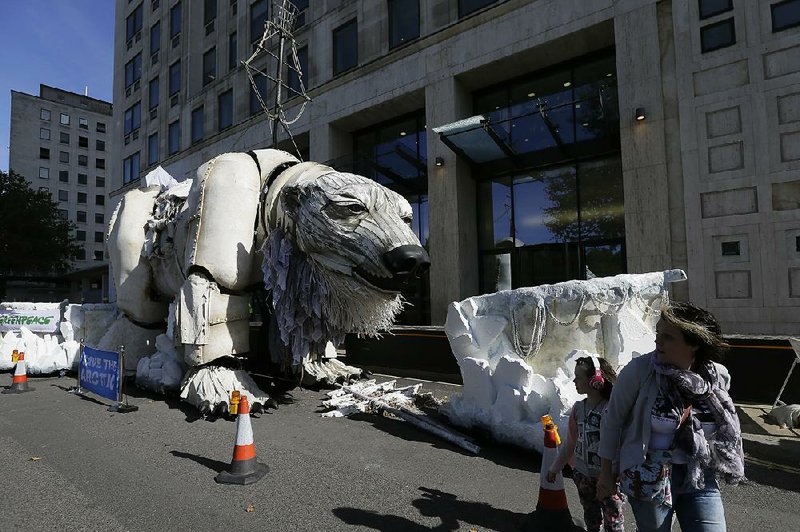Royal Dutch Shell PLC will halt exploration in the U.S. Arctic after $7 billion of spending ended with a well off Alaska that failed to find any meaningful quantities of oil or natural gas.
Shell said it expects to take financial charges related to the Alaskan operations, which carry a value of about $3 billion on its balance sheet with additional contractual commitments of about $1.1 billion. The Hague, Netherlands-based company will cease further offshore activity in the region for the foreseeable future.
"This could be negative for third-quarter earnings because of potential impairment charges," Ahmed Ben Salem, a Paris-based analyst with Oddo & Cie, said by phone. "On the other hand, in a $50 oil-price environment, it's not so bad to abandon that search because it's expensive. Shell has enough resources already."
Europe's largest oil company was targeting resources it said could be 10 times greater than the oil and gas produced so far in the North Sea. The decision to explore in the Arctic met with resistance from environmental groups including Greenpeace, whose activists occupied the company's drilling rigs. Shell and its peers are also curbing spending after the price of oil slumped about 50 percent in the past year amid a global oversupply.
"This is a clearly disappointing exploration outcome," Marvin Odum, director of Shell's Upstream Americas unit, said in a statement. While indications of oil and gas were present in the Burger J well in Alaska's Chukchi Sea, they weren't sufficient to warrant further exploration, the company said. Shell will now plug and abandon the well.
Shell had planned a two-year drilling program starting this July. The company was seeking to resume work halted in 2012 when its main drilling rig ran aground and was lost. It was also fined for air pollution breaches. The Anglo-Dutch company first discovered oil and gas in the region in the late 1980s.
"This Alaskan decision is a reaction to the lower oil price -- an example of not going forward with a project because there is just not enough oil and gas to make it economic," said Louise Cooper, an independent analyst at CooperCity. "If the oil price rises again and the well becomes economic, then it can try again."
The company continues to see potential in the region and the decision not to explore further in Alaskan waters "reflects both the Burger J well result, the high costs associated with the project, and the challenging and unpredictable federal regulatory environment in offshore Alaska," according to the statement.
Shell won approval for its Arctic plans in May after the U.S. Interior Department found drilling in the Chukchi Sea would have no major environmental impact. Monday was Shell's final day to drill this year in petroleum-bearing rock offshore Alaska under its federal permit. Regulators required Shell to stop a month before sea ice is expected to re-form in the lease area.
Campaigners from Greenpeace and other environment groups have opposed Shell's plans to drill in the Arctic and the U.S. government's approval of the plan. In May, Shell's shareholders questioned why they should support a drilling program that could pollute waters and contaminate seafood.
"Big Oil has sustained an unmitigated defeat," Greenpeace U.K. Executive Director John Sauven said by email. "The Save the Arctic movement has exacted a huge reputational price from Shell for its Arctic drilling program. And as the company went another year without striking oil, that price finally became too high."
Exxon Mobil Corp., BP PLC and other producers have discovered more than 10 billion barrels of oil in North American Arctic seas since the early 1970s. Most of those resources remain locked beneath the sea floor because of a lack of pipeline capacity to haul them to faraway markets.
Shell's B shares, the most widely traded, dropped 2.7 percent to about $23.02 in London, the lowest price since Aug. 6, 2009. The stock has declined 32 percent this year.
Information for this article was contributed by Dan Joling of The Associated Press.
Business on 09/29/2015
